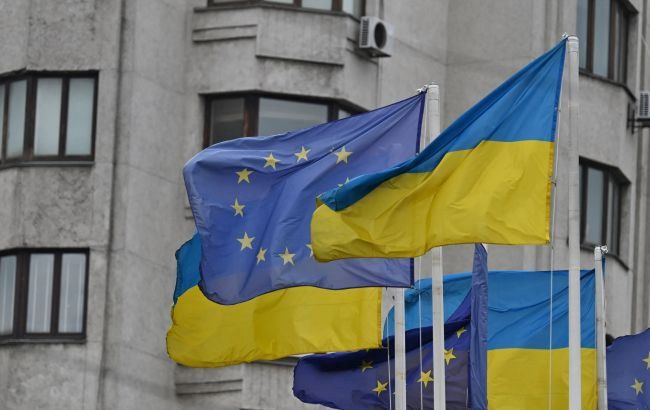Europe moves closer to approving reparations loan for Ukraine – Politico
 Photo: The EU may approve a reparations loan as early as October 23 (Getty images)
Photo: The EU may approve a reparations loan as early as October 23 (Getty images)
The European Union is close to adopting a decision to use proceeds from frozen Russian assets to finance the so-called reparation loan for Ukraine, according to Politico.
In preparation for the meeting, EU Ambassadors have already informally agreed on a draft of the European Council's conclusions, which the agency has seen.
The European Commission is being called upon to put forward a proposal for a reparations loan for Ukraine, which is based on proper European solidarity and risk sharing.
According to a Belgian diplomat, the draft text is a "political go-ahead" for the European Commission, which will allow the proposal to be published after Thursday's meeting.
"I’m not so worried about Belgium," said an EU diplomat from another country.
Belgium's position on reparations loan
Belgium has taken a cautious approach to granting Ukraine a reparations loan. Since Belgium is home to Euroclear, where Russia's frozen assets are held, the country fears that it will have to reimburse the money itself if Moscow's likely claims are upheld.
However, a Belgian diplomat told Politico that Belgium would not oppose a call for the European Commission to put forward a loan proposal.
Even if the European Commission is allowed to approve the reparations loan, its legal proposal will face weeks of difficult negotiations with national capitals.
Ukraine needs to obtain reparations loan before US and Russia leaders' meeting
As the agency notes, Ukraine needs to secure a multi-billion-dollar reparations loan before the meeting between US President Donald Trump and Vladimir Putin in Budapest, which is to take place in the near future.
This would be a significant boost for Kyiv and would undermine Putin's attempts to secure territorial concessions for Moscow, Politico notes.
"The Russians are betting on our war fatigue, but the reparations loan can show Russia that Ukraine will be financially viable for the next two or three years," said an EU diplomat who agreed to speak on condition of anonymity.
EU reparations loan for Ukraine
Ukraine's international partners are discussing ways to cover next year's budget deficit. One of them involves creating a so-called reparations loan — a mechanism that would allow frozen Russian assets to be used for Ukraine's benefit.
There is a sum of up to €130 billion, which would significantly help strengthen Ukraine's defense and enhance its ability to counter Russia, as well as support Ukraine's economy as a whole.
In general, the EU is taking into account the financial and legal risks of granting Ukraine a reparations loan. In particular, it's about the destabilization of the euro and legal liability to Moscow.
Despite this, EU leaders are ready to distribute these risks among countries and still plan to provide Kyiv with a reparations loan, as reported by the media the day before.
Belgium is most exposed to the risks of granting Ukraine a loan. This is because Belgium is home to Euroclear, where cash from blocked Russian assets is stored.
If Moscow's likely claims are upheld, Belgium will have to reimburse money amounting to one-third of the country's GDP.
Taking all this into account, the European Commission has proposed creating an insurance mechanism that would allow loans to be granted to countries immediately if they are forced to compensate Moscow for its costs.
According to Politico, this should reassure Belgium that it will not be left alone and that other EU countries will help in the worst-case scenario.
Even without final approval from Brussels on Thursday, the EC can still submit a legal proposal after the leaders' meeting.


